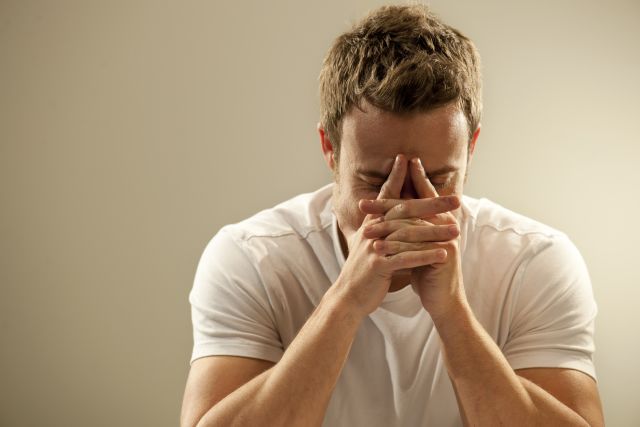Testosterone is referred to as the male sex hormone. While this hormone is present in both males and females, it’s made in the testicles, levels are much higher in males, and it’s the driving force behind the development of secondary male sex characteristics.
When testosterone levels decline, symptoms can occur. A decline in testosterone levels is often called “low testosterone” or “low T.” In clinical terms, it’s called male hypogonadism.
Symptoms of low testosterone can include increased body fat, loss of muscle mass, fatigue, hair loss, and erectile dysfunction. They can also include changes in moods, emotions, and behavior—a person may feel more irritable, have difficulty concentrating, and have an overall lower sense of well-being.
Here, we look at the relationship between testosterone levels, moods, emotions, and mental health—and why these are important topics to discuss with your healthcare provider.
Your best source of information
Before delving into this topic, it’s important to state that low testosterone can happen for many reasons, and some of the most common symptoms associated with low testosterone can have many different causes.
Your best source of information will be a healthcare provider. A healthcare provider can order a blood test called a testosterone levels test, which will give a clear picture of your testosterone levels. They can also look at your overall health and identify other factors that may be causing or contributing to your symptoms.
Testosterone and mental health
Depression, anxiety, and other mental health disorders are often part of the discussion about low testosterone and low testosterone treatments. However, the relationship between mental health disorders and low testosterone levels is not fully understood.
For example, there is research that supports an association between low testosterone levels and an increased risk of depression. More recent research suggests that there might be an association between low testosterone and some depressive symptoms, but this relationship is not strongly established.
What is known is that people with low testosterone report an overall lower quality of life. It’s not difficult to imagine how symptoms like fatigue, weight gain, loss of muscle mass, and loss of libido can lower a person’s quality of life.
It’s also worth noting that treatment with testosterone replacement therapy is associated with improvements in quality of life, which may be followed by improvements in mood.
Causes of low testosterone
In males, testosterone levels decline with age. This occurs gradually over time, typically beginning at age 30. By some estimates, 25 percent of men over age 30 have low testosterone.
In addition to aging, many illnesses and injuries can also cause or contribute to low testosterone. Some examples:
- Injuries or infections that affect the testicles
- Cancer treatments like chemotherapy, radiation therapy, and hormone therapy
- Pituitary gland disorders, including brain tumors near the pituitary gland
- Alcohol use disorder
- Using opiate medications
- Being obese
Having any of these conditions or injuries can take a toll on a person’s mental health. If you have experienced any of these illnesses or injuries, mental health should be something you are discussing with your healthcare providers.
Treatment for low testosterone
The typical treatment for low testosterone is testosterone replacement therapy (TRT) to restore blood testosterone concentrations back to the normal range. TRT can be administered in several ways:
- Intramuscular injections
- Transdermal patches
- Transdermal gels
- Tablets that dissolve in the mouth and are absorbed through the gum and cheek
- Subcutaneous pellets implanted under the skin
- Oral medications (pills or capsules)
Different treatments work better for different people, and again, your best source of information when deciding to try TRT and choosing a treatment will be a healthcare provider.
TRT is not a treatment for depression, anxiety, or any mental health disorder—and if you are experiencing low moods, don’t feel like yourself, or think there has been a change in your mental health, talk to your healthcare provider.





